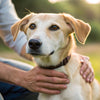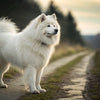Understanding Miniature Pinscher Personality Traits: The King of Toys
- Houndsy
Table of Contents
- Introduction
- The Miniature Pinscher: A Brief Overview
- Key Personality Traits of Miniature Pinschers
- How These Traits Affect Daily Life
- Caring for a Miniature Pinscher
- Conclusion
- FAQ
Introduction
Have you ever met a dog that seems to have a personality larger than life? If you have, there’s a good chance that dog was a Miniature Pinscher. Known for their spirited nature and fearless demeanor, Miniature Pinschers are a fascinating breed that packs a punch despite their small size. In fact, their personality traits have earned them the affectionate title of the "King of Toys" among dog enthusiasts.
Miniature Pinschers, or "Min Pins," are often misunderstood due to their resemblance to Doberman Pinschers. However, they are a distinct breed with a rich history and a unique set of personality traits. Understanding these traits is essential for anyone considering adding a Min Pin to their family or for those who already have one.
In this blog post, we will explore the captivating personality traits of Miniature Pinschers, from their boundless energy and intelligence to their loyalty and quirks. We’ll also delve into how these traits impact their behavior, training, and overall compatibility with families and other pets. By the end, you'll have a comprehensive understanding of what makes Miniature Pinschers such delightful companions.
The Miniature Pinscher: A Brief Overview
Origin and History
Miniature Pinschers trace their roots back to Germany, where they were originally bred to hunt vermin. This breed is not a miniature version of the Doberman Pinscher; rather, it has a unique lineage that includes German Pinschers, Dachshunds, and Italian Greyhounds. The breed was officially recognized in the early 20th century and has since gained popularity in both Europe and the United States.
Their vibrant personality and charming appearance have made them a favorite among dog lovers. In fact, Min Pins have been featured in various pop culture references, solidifying their place as an iconic breed.
Physical Characteristics
Before diving into personality traits, it’s worth noting the physical characteristics that accompany the Min Pin’s lively personality. They typically stand about 10 to 12.5 inches tall and weigh between 8 to 11 pounds. Their sleek, short coat comes in several colors, including red, black and tan, and chocolate and rust.
Despite their compact size, Min Pins possess a robust physicality and a distinctive high-stepping gait that makes them appear regal. This combination of elegance and energy only adds to their captivating personality.
Key Personality Traits of Miniature Pinschers
1. Energetic and Spirited
One of the most defining traits of the Miniature Pinscher is their energy level. These dogs are known to be lively, spirited, and always on the move. They thrive on activity and require regular exercise to keep their minds and bodies engaged. Whether it’s running around in the backyard or going for brisk walks, Min Pins love to stay active.
- Daily Exercise Needs: To ensure they remain happy and healthy, it’s essential to provide them with at least 30 minutes of vigorous exercise each day. Without it, they may resort to destructive behaviors, such as chewing or digging.
2. Fearless and Confident
Miniature Pinschers have a reputation for being fearless, often acting as if they are much larger than they actually are. This confidence manifests in their interactions with both people and other animals. They are naturally curious and love to explore their surroundings, which can sometimes lead them into trouble if they aren’t supervised closely.
- Watchdog Instincts: Their alert nature makes them excellent watchdogs. They will bark to alert their owners of any perceived threats, showcasing their protective instincts.
3. Intelligent and Independent
Min Pins are highly intelligent dogs, which can be both a blessing and a challenge for their owners. They are quick learners and can pick up on commands and tricks with ease. However, their independent streak can also make them somewhat stubborn.
- Training Tips: To effectively train a Miniature Pinscher, it’s crucial to employ positive reinforcement techniques and maintain consistency. Early socialization and training are key to helping them become well-mannered adults.
4. Affectionate and Loyal
Despite their sometimes aloof demeanor, Miniature Pinschers are incredibly affectionate and loyal to their families. They form strong bonds with their owners and thrive on love and attention. While they may not be the most cuddly of breeds, they enjoy being near their humans and will often follow them around the house.
- Social Creatures: Min Pins generally get along well with older children and can even coexist with other pets if properly socialized. However, care should be taken when introducing them to smaller animals, as their prey drive may kick in.
5. Playful and Mischievous
The playful nature of Miniature Pinschers makes them entertaining companions. They are known for their antics and love to engage in games. Their mischievous side often leads them to explore and sometimes get into mischief, so they require a watchful eye.
- Interactive Play: Providing toys and engaging in interactive play can help channel their energy in a positive direction, keeping them entertained and happy.
6. Vocal and Expressive
Miniature Pinschers are known for their vocalizations. They tend to bark frequently, especially when alerting their owners to anything they deem suspicious. This vocal nature can be charming, but it can also become a nuisance if not managed properly.
- Managing Vocalization: Training your Min Pin to understand when barking is appropriate can help curb excessive vocalizations. Consistent reinforcement of quiet commands can be beneficial.
How These Traits Affect Daily Life
Understanding the personality traits of Miniature Pinschers is crucial for anyone considering adopting one of these lively dogs. Here’s how these traits can impact daily life:
Compatibility with Families
Miniature Pinschers can make excellent family pets, particularly in households with older children who understand how to interact with dogs. Their energetic nature can be a source of joy and playfulness, offering endless entertainment. However, families with very young children should exercise caution, as Min Pins can be easily injured during rough play.
Socialization Needs
Due to their fearless and sometimes domineering personality, early socialization is essential. Exposing them to various people, environments, and other animals can help ensure they grow up to be well-adjusted adults. Regular outings to dog parks or puppy training classes can provide valuable experiences for them.
Training Challenges
While their intelligence is a double-edged sword, training can be more challenging with a Miniature Pinscher compared to other breeds. Their independent streak means that they may not always be inclined to follow commands. Consistency, patience, and positive reinforcement are vital for successful training.
Exercise and Mental Stimulation
As high-energy dogs, Miniature Pinschers require ample physical and mental stimulation. Owners should incorporate daily exercise routines, interactive play, and even puzzle toys to keep their minds engaged. Failing to meet their exercise needs can result in destructive behaviors and behavioral issues.
Caring for a Miniature Pinscher
To ensure a happy and healthy life for your Miniature Pinscher, it’s essential to consider the following care tips:
Nutrition
Providing a balanced diet is crucial for maintaining their health. Depending on their age, size, and activity level, the daily food intake can vary. It’s advisable to consult a veterinarian for a tailored feeding plan.
Grooming
Fortunately, grooming a Miniature Pinscher is relatively easy. Their short coat requires minimal maintenance, with a brushing session every few days to remove loose hair and dirt. Regular dental care and nail trimming are also important aspects of their grooming routine.
Health Monitoring
Like all breeds, Miniature Pinschers can be prone to certain health conditions. Regular veterinary check-ups and vaccinations are essential. Being attentive to any changes in behavior or physical appearance can help catch potential health issues early.
Conclusion
Miniature Pinschers are a breed full of personality, energy, and charm. Their spirited nature, intelligence, and loyalty make them wonderful companions for the right families. However, they require understanding, patience, and proper socialization to thrive in a home environment.
As dog lovers, we at Houndsy are passionate about enhancing the everyday experience of pet owners, and we understand how important it is to provide the right care for your furry friends. Consider exploring our products designed to streamline feeding routines, such as the Houndsy Kibble Dispenser, which simplifies feeding while keeping your home decor in mind.
By investing time and effort into understanding and caring for your Miniature Pinscher, you’ll be rewarded with a loyal and loving companion that will fill your life with joy and laughter.
FAQ
What is the typical lifespan of a Miniature Pinscher?
Miniature Pinschers typically live between 12 to 16 years, depending on their health and care.
Are Miniature Pinschers good with children?
They can be good with older children who know how to interact with dogs. However, supervision is essential, especially with younger kids.
How much exercise do Miniature Pinschers need daily?
They require at least 30 minutes of vigorous exercise each day to keep them happy and healthy.
Are Miniature Pinschers prone to any health issues?
While generally healthy, they can be prone to conditions like patellar luxation, hypothyroidism, and progressive retinal atrophy.
Can Miniature Pinschers be trained easily?
They are intelligent but can be stubborn. Consistent, positive reinforcement training methods are recommended for best results.









